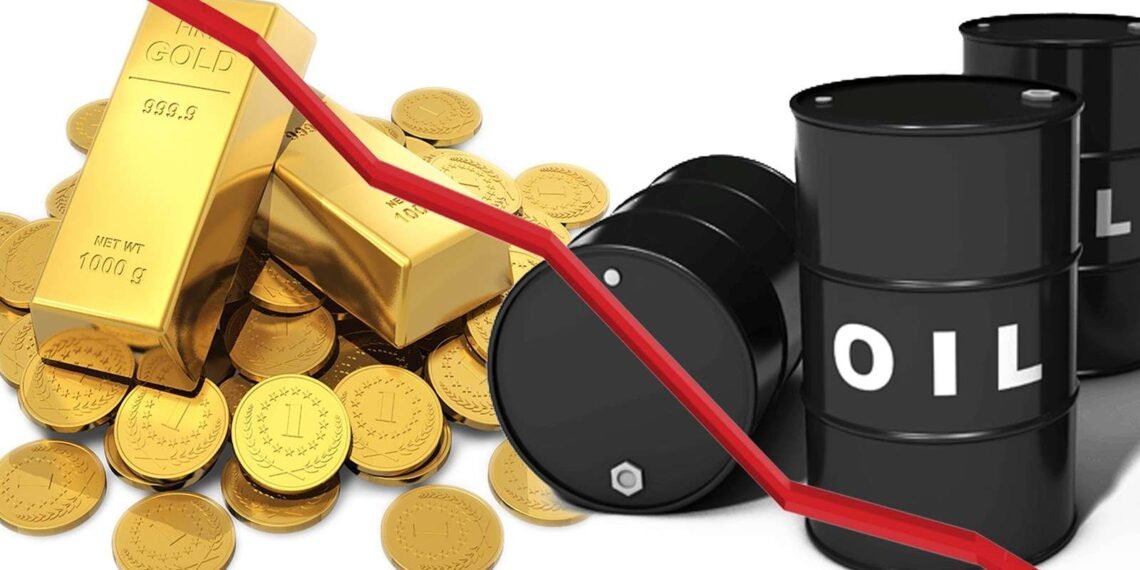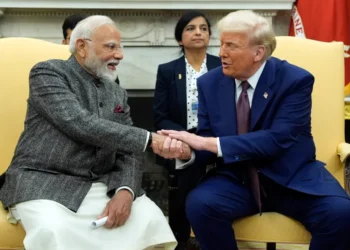Hon. Kojo Oppong Nkrumah, MP for Ofoase Ayirebi and a member of Parliament’s Economy and Development Committee, has reaffirmed the significant contribution of the Gold for Oil initiative to Ghana’s economic stability.
He explained that recent discussions between the committee and the Bank of Ghana (BOG) confirmed that the program had facilitated the purchase of fuel cargo amounting to roughly $1.7 billion.
This data, he stressed, directly challenges ongoing assertions that the initiative lacked substance or had failed in its execution.
Despite criticisms from some political quarters seeking to discredit the policy, the committee maintained that the program has helped stabilize foreign exchange inflows.
“Ignore the propaganda that there was no gold for oil program,” Oppong Nkrumah asserted, as he continued to lead the charge in clarifying Parliament’s economic oversight efforts.
He further explained that Ghana’s export-driven forex gains have been a major pillar in shielding the local currency.
“Prices of Gold have shot up by about 43% and Cocoa by about 90% between H1 2024 and H1 2025, leading to strong forex earnings to support the cedi. Additionally, the BOG has intervened with over $2 billion USD from our reserves to push the cedi,” he noted.
Hon. Kojo Oppong Nkrumah
In addition to interventions via export earnings and reserve deployment, Hon. Kojo Oppong Nkrumah revealed that the Bank of Ghana is adopting further measures to safeguard the country’s economic resilience through commodity hedging.

As part of its forward-looking strategy, the central bank is initiating a program to hedge a portion of Ghana’s gold reserves.
This move is seen as a strategic step toward ensuring the long-term sustainability of the country’s forex stability, building on the momentum created by the gold purchase initiative.
BOG Probes Dollar Shortages Amid Gold for Oil Benefits
Although various policy tools have been deployed to stabilize the cedi and maintain adequate forex reserves, challenges persist within the foreign exchange market.
Several stakeholders, particularly importers and traders, have voiced concerns over limited access to foreign currency, with the US dollar being the most affected.
In response to these developments, the Bank of Ghana has initiated a formal investigation into the operations of commercial banks to identify potential bottlenecks.

As explained by Hon. Kojo Oppong Nkrumah, the probe will specifically focus on commercial banks’ Nostro account balances and their Net Operating Positions.
The central bank maintains that its forex reserves are sufficient, prompting the need to examine whether other factors within the banking sector are contributing to the perceived shortage.
“Meanwhile, the market says demand is being suppressed to keep a fixed rate,” he added. The results of this investigation are expected to be made public within the next month.
Liquidity Control Sparks Mixed Reactions
In addition to foreign exchange management, the Bank of Ghana has sterilized approximately 60 billion cedis from the economy since January 2025.
This move, designed to curb inflation and maintain monetary stability, has triggered debate on whether the withdrawn liquidity could have been put to more productive use.
“We argue that a better approach would have been to have it channeled to productive funds like the VCTF and GSE.”
Hon. Kojo Oppong Nkrumah
He advocated for a policy reversal that would allow these funds to support enterprise development and capital market growth.

“We urge a reversal and a rechanneling, so this liquidity can impact growth and jobs,” he emphasized, underscoring the need to align monetary tightening with developmental objectives.
These remarks come as Parliament observes its recess period, with the Economy and Development Committee wrapping up its mid-year review activities.
The committee’s recent work with the Bank of Ghana provided critical insight into the country’s economic status ahead of the 2026 budget planning phase.
As Ghana faces a delicate balance between maintaining macroeconomic stability and fostering inclusive growth, the implementation and monitoring of policies like Gold for Oil will remain central to the national discourse.
By reducing dependency on external borrowing for fuel imports and using commodity gains to build forex buffers, the program has thus far served as a buffer for the cedi.
However, challenges remain. Reports of limited dollar supply in the market, combined with debate over how best to use sterilized liquidity, highlight the need for stronger coordination between fiscal and monetary authorities.
The outcome of the Bank of Ghana’s investigation into the commercial banking sector may offer answers—and potentially reform—on how forex flows are managed and distributed across the economy.
As Parliament prepares to resume, all eyes will be on whether upcoming legislative actions and monetary reviews reflect the insights gathered from these mid-year assessments.
Stakeholders, including importers, investors, and local producers, will be particularly attentive to any policy shifts that affect forex access and economic growth momentum.



















